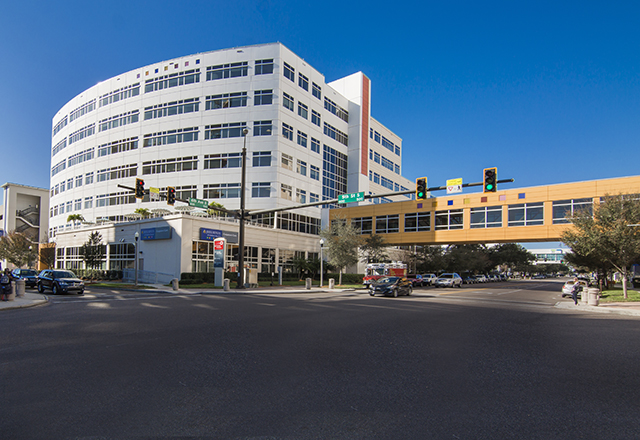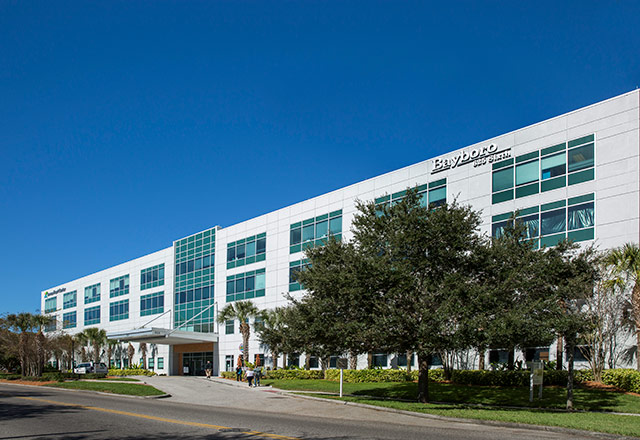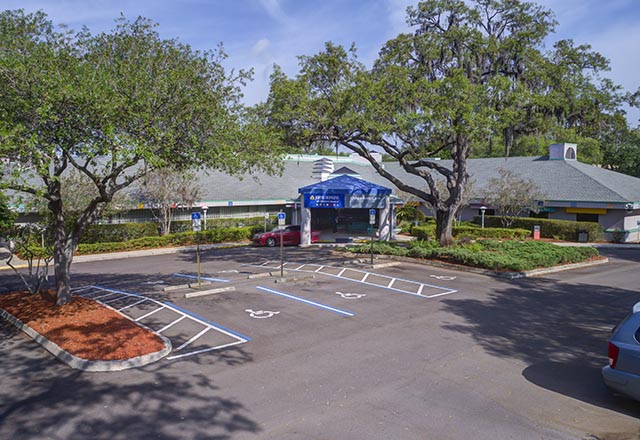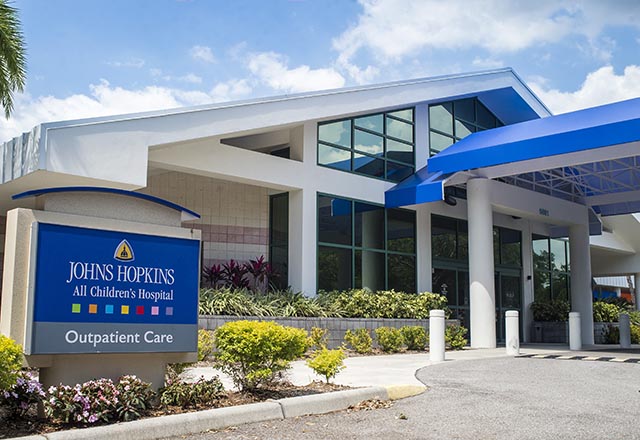Physician Information for Adult Congenital Heart Disease
The team at Johns Hopkins All Children’s Hospital provides comprehensive evaluation and treatment plans for adults with congenital heart defects. We’re ready to discuss with you how we can help your patient.
In the Adult Congenital Heart Disease (ACHD) Program at Johns Hopkins All Children’s Hospital in St. Petersburg, Florida, we provide a comprehensive evaluation to manage the impact of a patient’s congenital heart disease as they grow older.
Children with congenital heart disease (CHD) are now living well into adulthood, and research shows that adults with CHD may have an increased risk of cardiac complications throughout their lives even if it has been repaired. American Heart Association guidelines recommend that adults with CHD receive at least one comprehensive evaluation from a cardiologist who specializes in congenital issues.
We work closely with our patients’ adult cardiologists, obstetricians, maternal-fetal medicine specialists, primary care providers, or other specialists to provide continuity of care for their CHD. Our nurse coordinator and nurse practitioner assist in providing seamless quality care to our patients.
Adult Congenital Heart Disease Program Highlights
Led by cardiologist Christopher Talluto, M.D., our adult congenital heart team focuses on helping patients lead full and active lives. We provide services such as:
- Initial evaluation and ability to provide longer-term care.
- Care coordination with current providers and existing adult cardiologist.
- Consultations to discuss pregnancy risks before conception.
- Care before, during and after pregnancy with careful coordination among cardiologists, fetal cardiologists, and maternal-fetal medicine specialists to meet your patient’s needs.
The frequency with which we may see your patient depends on the severity of the condition and individual needs. We may see patients with severe defects every three to six months, those with moderate defects every one to two years, and those with simple defects every three to five years or possibly for a one-time evaluation.
If your patient requires certain advanced diagnostic procedures or treatments – such as cardiac catheterization, electrophysiology, advanced cardiac imaging including echocardiogram, MRI or CT, or surgery – some of these procedures may be performed at Johns Hopkins All Children’s, while others may be performed at other area hospitals. Many patients will often continue to receive other testing such as EKGs with their primary cardiologist or provider.
Transition Care for Teens and Young Adults
As teenage patients enter adulthood and transition to adult care, it’s important that they feel empowered to take greater responsibility for their own health care. We offer a transition program for teens with CHD that is in addition to the regular care they receive from their pediatrician and/or pediatric cardiologist and focuses on patient education and support.
Some of the topics we address with teens in the transition program may include:
- Helping them have a comprehensive understanding of their condition.
- Knowing the names, dosage, and frequency of all their medications.
- How to ask their providers questions about any aspect of their condition and/or health.
- How to navigate health insurance questions as they age off parents’ or guardians’ health plan.
We also help to screen for other concerns, such as issues with anxiety that may be related to their condition or neurodevelopmental concerns and will communicate directly with you and any other providers involved in your patient’s CHD care. Learn more about the adolescent care transition program.
Frequently Asked Questions
How do I refer a patient to the ACHD program?
For more information about referring a patient to our program, call us at 727-767-2243. We’re ready to discuss your patient’s case with you to determine how we can help best meet their needs.
Johns Hopkins All Children’s Hospital uses Epic as its electronic medical record system. Providers with access to Epic can also refer a patient to our program through Epic by making a referral for “adult congenital cardiology.” For any questions about how to refer a patient, please call 727-767-2243.
Do you provide second opinions?
Congenital heart defects can be complex conditions that continue to impact patients throughout their lives. We are here to provide a second opinion or discuss options for your patient. For more information or to consult with our team, call us at 727-767-2243.
How do I send my patient’s medical records to you?
Records may be faxed to 727-767-8990.
Records such as test results on discs may be mailed to:
Johns Hopkins All Children’s Hospital
Attn: Heart Institute – ACHD program
501 Sixth Ave. S
St. Petersburg, FL 33701
Meet Our Team
Christopher Talluto, MD
Cardiology - Adult

Jackie Walsh, APRN

Contact Us
If you are a referring provider who would like more information about referring patients to the ACHD program, or to speak with the program nurse for any non-urgent questions or inquiries, please call 727-767-2243.
If you are a patient who would like to make an appointment, please call 727-767-3333. We serve patients throughout the Tampa Bay area and beyond.
Give us a call
Where are patients seen?
Patient are seen at the below Outpatient Care Centers as well as:
MRC Health
6040 53rd Ave. E
Suite B
Bradenton, FL 34203
In addition, we also offer options for telemedicine. Our team works with each patient to determine the options that best fit their needs.
-
Outpatient Care Center
Johns Hopkins All Children's Hospital 601 5th Street South, St. Petersburg, FL 33701

-
Bayboro Building
Johns Hopkins All Children's Hospital 625 6th Avenue South, St. Petersburg, FL 33701

-
Johns Hopkins All Children's Outpatient Care
Tampa 12220 Bruce B Downs Blvd., Tampa, FL 33612

-
Johns Hopkins All Children's Outpatient Care
Sarasota 5881 Rand Blvd., Sarasota, FL 34238


